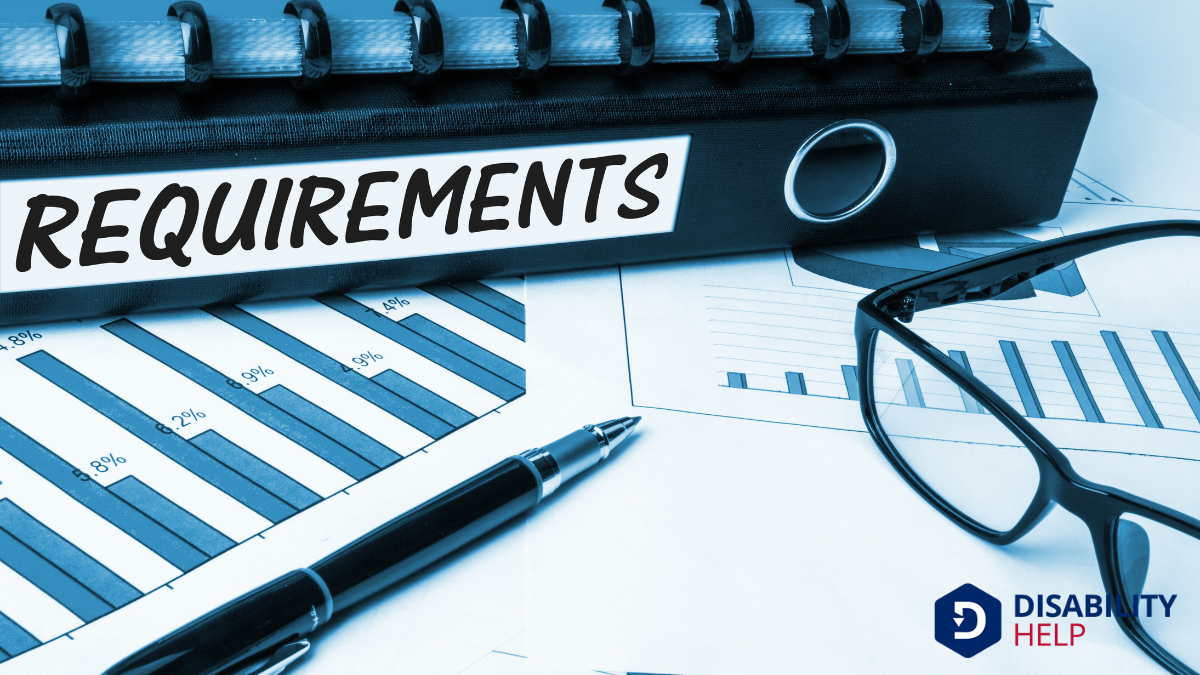To determine if you're eligible for Supplemental Security Income (SSI), you'll need to meet specific criteria regarding age, disability, income, and resources. Generally, you must be at least 65 or have a qualifying disability. Your income and resources can't exceed certain limits set by the Social Security Administration. U.S. citizenship and residency are also required. Curious about how these elements intertwine and what exceptions might exist? There's more to uncover.
Key Takeaways
- SSI eligibility requires individuals to have limited income and resources, with set limits for both.
- Applicants must be U.S. citizens or meet specific non-citizen eligibility conditions.
- The program is available to those 65 or older, or younger individuals with qualifying disabilities.
- Disabilities must severely limit work-related activities and be expected to last at least a year.
- Eligibility requires residing in the U.S. and not being absent for over 30 consecutive days.
Understanding the Basics of SSI
To grasp the basics of Supplemental Security Income (SSI), it’s important to know that SSI is a federal program designed to assist individuals with limited income and resources. You qualify for SSI if your financial situation meets specific criteria, which means your income and resources fall below established thresholds.
SSI aims to provide financial assistance to help cover basic needs like food, clothing, and shelter.
You should also be aware that SSI isn’t based on work history, unlike Social Security benefits. Instead, it focuses on need. The Social Security Administration (SSA) manages the program, ensuring that those who are eligible receive the support they require.
Keep in mind that while the program offers financial help, eligibility requirements can vary, so understanding these basics is essential.
Age Requirements for SSI

When you're considering SSI, it's essential to understand the age requirements.
Generally, SSI is available to individuals aged 65 or older, but there are exceptions for younger individuals with disabilities.
Knowing how age impacts eligibility can help you determine whether you or a loved one might qualify.
Minimum Age Criteria
Understanding the minimum age criteria for Supplemental Security Income (SSI) is essential for determining eligibility.
If you’re considering applying for SSI, knowing the age requirements is a key first step. Generally, SSI is available to individuals who are 65 or older.
However, it’s not just limited to seniors. If you’re under 65 and meet certain criteria, you might still qualify. Specifically, children can be eligible if they've a medically determinable physical or mental impairmentA loss or abnormality of a body structure or function, whether physical, mental, or sensory, often a... that results in marked and severe functional limitations. This condition must be expected to last for at least 12 months or result in death.
For adults under 65, a qualifying disability that notably impairs your ability to work can also make you eligible for benefits.
Age Exceptions Explained
While the standard age requirement for Supplemental Security Income (SSI) is 65, there are notable exceptions that allow younger individuals to qualify.
If you're under 65, you can still be eligible if you meet specific criteria. Children who are blind or have disabilities can receive SSI benefits, provided they meet the Social Security Administration's definition of disability and have limited income and resources.
Additionally, adults aged 18 to 64 with a qualifying disability can also qualify for SSI. The key is proving that the disability considerably limits your ability to engage in substantial work.
It’s crucial to provide thorough medical documentation and evidence to support your claim. Understanding these exceptions can help you navigate the requirements and determine if you or your dependents might qualify for SSI benefits.
Impact of Age
Although age plays a significant role in determining eligibility for Supplemental Security Income (SSI), it's not the sole factor. If you're an adult aged 65 or older, you satisfy one of the basic age requirements. However, younger individuals can still qualify if they're blind or disabled.
No matter your age, you must meet other criteria, including limited income and resources, to receive benefits.
For those under 18, eligibility depends on the financial situation of their parents or guardians. Once you reach 18, the Social Security Administration (SSA) assesses your income independently.
Disability Criteria for SSI
When you're considering applying for Supplemental Security Income (SSI), knowing the disability criteria is essential. The Social Security Administration (SSA) requires that your condition greatly limit your ability to perform basic work-related activities. It must be expected to last at least a year or result in death.
To qualify, you'll need medical documentation proving the severity of your impairment. The SSA maintains a list of qualifying medical conditions, but even if your condition isn't listed, you might still qualify if it's equally severe.
For children, the criteria focus on functional limitations affecting daily activities. Remember, the process can be complex, so gathering thorough medical records and staying informed about the requirements can improve your chances of approval.
Income Limits and Exclusions
When considering SSI eligibility, you'll need to understand the income limits and what counts as income.
Not all income affects your SSI benefits, thanks to specific exclusion rules.
Countable Income Criteria
Understanding the countable income criteria is crucial for determining eligibility for Supplemental Security Income (SSI). Countable income includes earned and unearned income, impacting your benefits. Earned income comes from work, like wages or self-employment, while unearned income includes pensions, unemployment benefits, and more.
The Social Security Administration (SSA) sets income limits, meaning your countable income must be below a certain level to qualify for SSI. Not all income counts towards these limits, however. For instance, the SSA excludes a portion of your earnings and other specific income sources.
It’s important to know what income affects your eligibility and how it’s calculated. By understanding these criteria, you can better assess whether you meet SSI's financial requirements and plan accordingly.
Income Exclusion Rules
Now that you know what counts as income for SSI, let's explore the income exclusion rules, which help you determine what's not counted against your eligibility.
SSI doesn't count certain types of income, allowing you to maintain benefits even if you receive some funds. For instance, the first $20 of most income received in a month is excluded. Additionally, earned income exclusions allow you to deduct the first $65 of your earnings, plus half of the remaining earned income.
Other exclusions include food stamps, tax refunds, and certain scholarships or grants. Gifts, loans, and certain assistance from organizations may also be excluded.
Understanding these exclusions guarantees you accurately assess your financial situation and maximize your potential SSI benefits without unnecessary worry.
Resource Limits and Exclusions

Although maneuvering through the complexities of Supplemental Security Income (SSI) can be challenging, understanding its resource limits and exclusions is vital for determining eligibility.
SSI sets strict resource limits: $2,000 for individuals and $3,000 for couples. These include cash, bank accounts, and personal property. However, not all resources count against you. Your home, one vehicle, and personal items like clothes and household goods are usually excluded.
Additionally, certain burial funds and life insurance policies may not be counted. Keeping track of these assets is important because exceeding the limits can disqualify you from receiving benefits.
To maintain eligibility, regularly review your resources and confirm they stay within the required thresholds. This awareness helps you confidently navigate SSI's criteria.
Citizenship and Residency Conditions
When considering eligibility for Supplemental Security Income (SSI), resource management is just one piece of the puzzle. You also need to meet specific citizenship and residency conditions.
To qualify, you must be a U.S. citizen or national. However, certain non-citizens, like lawful permanent residents, refugees, and asylees, might qualify under specific conditions.
Your residency status matters too. You must live in one of the 50 states, District of Columbia, or the Northern Mariana Islands.
Keep in mind, if you’re outside the U.S. for more than 30 consecutive days or for over 30 days in a row during a calendar year, your SSI benefits may stop. Ensuring you meet these criteria is essential for maintaining your eligibility.
Application Process for SSI
Applying for Supplemental Security Income (SSI) requires attention to detail and adherence to specific steps to guarantee a smooth process.
First, gather necessary documents like your Social Security number, birth certificate, and proof of income. It’s essential to have these on hand when you apply.
Start your application by visiting the Social Security Administration's website or calling their toll-free number to schedule an appointment. During your appointment, you’ll complete the application with a representative's help.
Make sure to answer all questions accurately to avoid delays. After submission, stay proactive by following up on your application’s status.
If approved, you'll receive a notice detailing your benefits. Remember, preparation and timely follow-ups are key to a successful SSI application process.
Special Rules for Children and Young Adults

Understanding the special rules for children and young adults applying for SSI is essential to confirm they receive the benefits they're entitled to. When applying, keep in mind these key considerations:
- Age Requirement: Children under 18 must meet specific disability criteria. Young adults aged 18-22 have different evaluation standards, often considering educational needs.
- Parental Income and Resources: For minors, parental income and resources are considered when determining eligibility. Once they turn 18, only the individual's resources are assessed.
- Medical Criteria: Children must have a physical or mental condition resulting in severe functional limitations expected to last at least 12 months or result in death.
- School Attendance: Young adults aged 18-22 may qualify for additional benefits if enrolled full-time in school, promoting continued education.
These rules confirm proper support for eligible children and young adults.
SSI and Other Benefit Programs
Maneuvering SSI benefits for children and young adults involves understanding their interplay with other available programs. You’ll find that SSI often works alongside MedicaidA U.S. government program that provides health coverage to eligible low-income individuals, includin..., providing essential healthcare coverage that can ease financial burdens.
While receiving SSI, your child may still qualify for other programs like SNAP for food assistance. It's important to remember that SSI benefits might affect eligibility or the amount received from other support systems.
You won't want to overlook educational grants and scholarships, as they don’t typically impact SSI, giving your child a chance to pursue further education without financial penalty.
Keep in mind that any income from part-time jobs or family gifts needs careful consideration, as they can affect SSI payments. Staying informed helps you maximize benefits effectively.
Conclusion
To see if you're eligible for SSI, verify that you meet the age or disability criteria and have limited income and resources. You must be a U.S. citizen or national and reside in the U.S. Understanding these requirements helps you navigate the application process. Remember, special rules may apply if you're a child or young adult. Always check how SSI interacts with other benefits to maximize your support. Stay informed and proactive in managing your eligibility.






